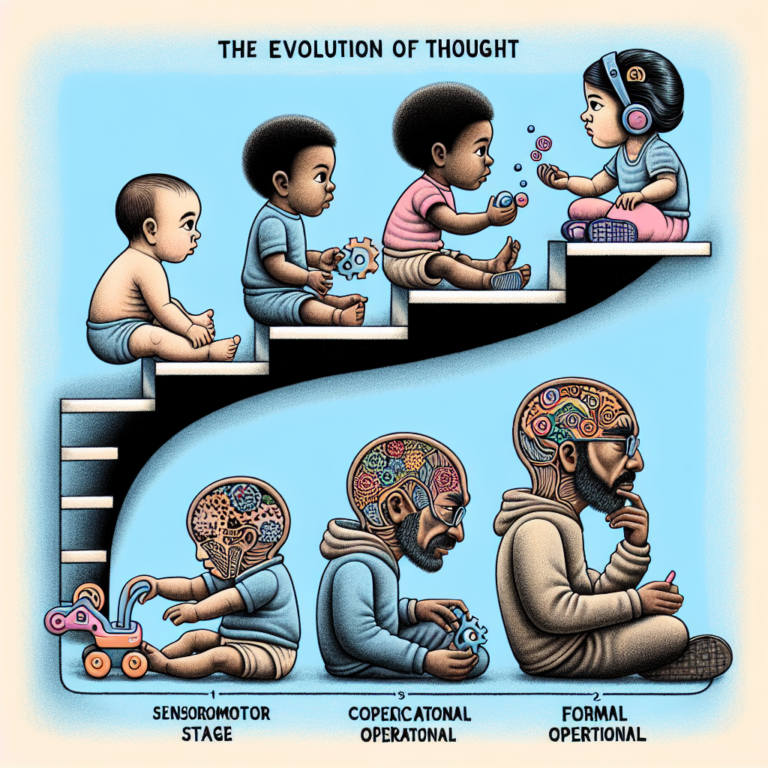
Introduction
Imagine facing a daunting challenge—perhaps a career shift, a demanding project, or a personal trial. What separates those who crumble under pressure from those who not only cope but thrive? The answer often lies in a powerful psychological construct: self-efficacy. Understanding and cultivating self-efficacy is crucial, as it acts as the secret ingredient for resilience and success. This article will delve into the dynamics of self-efficacy and illustrate how it can transform your life. By the end, you’ll comprehend how to harness this invaluable trait to bolster your resilience and achieve your goals.
What is Self-Efficacy?
Self-efficacy, a term coined by psychologist Albert Bandura, pertains to an individual’s belief in their ability to succeed in specific situations or accomplish tasks. This belief plays a significant role in how one approaches challenges and reacts to setbacks. When individuals possess high self-efficacy, they tend to embrace challenges, persist through difficulties, foster resilience, and ultimately achieve success.
The Four Sources of Self-Efficacy
Understanding how to develop self-efficacy is crucial for leveraging it. Bandura identified four primary sources of self-efficacy:
- Mastery Experiences: Successfully navigating a challenge boosts confidence in one’s abilities.
- Vicarious Experiences: Observing others succeed can enhance your belief in your own capabilities.
- Verbal Persuasion: Encouragement and constructive feedback can bolster one’s self-belief.
- Emotional States: Positive emotions can enhance self-efficacy, while negative emotions can inhibit it.
The Psychology Behind Resilience
Resilience is the ability to bounce back from adversity, adapting well in the face of challenges and trauma. While many factors contribute to resilience, self-efficacy is a foundational element. When individuals believe in their ability to influence events and outcomes, they are more likely to navigate difficulties with tenacity and confidence.
Case Studies: Self-Efficacy in Action
Case Study 1: Job Seeking and Self-Efficacy
Consider the journey of Sarah, who lost her job during an economic downturn. Initially, her confidence took a hit. However, after reflecting on her past achievements and relying on supportive friends, her self-efficacy grew. With renewed confidence, she approached her job search with vigor. Sarah successfully secured a new position, illustrating how enhanced self-efficacy can lead to resilience during career setbacks.
Analysis: This case underscores the importance of mastery experiences and social support in developing self-efficacy, especially in challenging times.
Case Study 2: Academic Achievement
John, a college student struggling with chemistry, faced mounting pressure as finals approached. He began to doubt his abilities, leading to increased anxiety. However, after attending study groups and receiving positive reinforcement from a professor, John’s self-efficacy improved. With a newfound belief in his capabilities, he not only passed his exams but excelled in the subject.
Analysis: John’s experience showcases the impact of vicarious experiences and verbal persuasion, highlighting their role in fostering academic resilience.
The Importance of Self-Efficacy in Different Life Areas
1. Workplace Success
Self-efficacy is critical in the workplace. Employees with high self-efficacy are more likely to engage in proactive behaviors, effectively manage stress, and contribute positively to team dynamics.
2. Mental Health
In the realm of mental health, self-efficacy can be a buffer against anxiety and depression. Those who believe in their abilities to cope effectively tend to have lower levels of stress.
3. Physical Wellness
Research shows that individuals with higher self-efficacy regarding their fitness goals are more likely to maintain a healthy lifestyle and adhere to exercise regimens.
Building Self-Efficacy: Practical Strategies
1. Set Achievable Goals
Start by setting small, realistic goals. Achieving these will provide mastery experiences and gradually enhance your self-efficacy.
2. Seek Mentorship
Find a mentor or someone who can provide guidance. This can lead to valuable vicarious experiences, demonstrating the possibility of success.
3. Maintain Positive Self-Talk
Monitor your inner dialogue. Replace negative thoughts with empowering affirmations. Verbal persuasion, especially from oneself, can dramatically boost self-efficacy.
4. Reflect on Past Successes
Take time to reflect on past achievements, no matter how small. Recognizing these moments can fuel your belief in your ability to succeed in current endeavors.
5. Cultivate Resilience
Learn to view challenges as opportunities for growth rather than insurmountable obstacles. Embrace a growth mindset, which is inherent to developing self-efficacy.
The Link Between Self-Efficacy and Motivation
Motivation plays a crucial role in achieving success. There are two types of motivation: intrinsic and extrinsic. Self-efficacy enhances intrinsic motivation, instilling a sense of purpose and personal investment in tasks.
The Motivation-Self-Efficacy Cycle
Here’s how the cycle works:
- High Self-Efficacy → Increased Motivation → Greater Effort → Better Performance
- Better Performance → Enhanced Self-Efficacy → Higher Motivation
This cycle can lead to a positive trajectory, creating a self-reinforcing loop of success.
Charts and Tables
Self-Efficacy and Resilience Relationship
| Factor | High Self-Efficacy | Low Self-Efficacy |
|---|---|---|
| Challenge Approach | Embraces challenges | Avoids challenges |
| Response to Setbacks | Uses setbacks as growth | Crumbles under pressure |
| Motivation Level | High | Low |
| Overall Resilience | High | Low |
Benefits of High Self-Efficacy
| Benefit | Description |
|---|---|
| Improved Performance | Greater achievement in tasks |
| Enhanced Resilience | Better coping mechanisms during stress |
| Greater Personal Growth | More willingness to take on new challenges |
Conclusion
In today’s fast-paced world, embracing self-efficacy as the secret ingredient for resilience and success is essential. By cultivating your beliefs in your capabilities, you can face challenges head-on and emerge stronger than ever. Remember, the journey begins with small steps—set achievable goals, seek support, and maintain a positive mindset. Over time, you will not just survive adversities; you will thrive.
Let this exploration of self-efficacy inspire you to believe in your potential and take actionable steps toward a more resilient and successful life.
FAQs
1. What is the difference between self-efficacy and self-esteem?
While self-efficacy refers to the belief in one’s abilities to succeed in specific tasks, self-esteem relates to overall self-worth and value. High self-efficacy can often lead to higher self-esteem.
2. Can self-efficacy be developed?
Absolutely! Self-efficacy can be developed through mastery experiences, social support, and positive self-talk. It’s a dynamic trait that can be strengthened over time.
3. How does self-efficacy affect learning?
Students with high self-efficacy are more likely to engage in challenging tasks, persist through difficulties, and ultimately achieve better learning outcomes.
4. What role do parents play in developing a child’s self-efficacy?
Parents can significantly influence a child’s self-efficacy through encouragement, providing opportunities for mastery experiences, and modeling resilience in the face of challenges.
5. Is self-efficacy the same as confidence?
While closely related, self-efficacy is more specific. It pertains to belief in one’s abilities in specific situations, whereas confidence is a more general sense of belief in oneself across various domains.
Understanding and harnessing self-efficacy is vital for anyone seeking resilience and success. Embrace this powerful concept as you navigate your journey.














